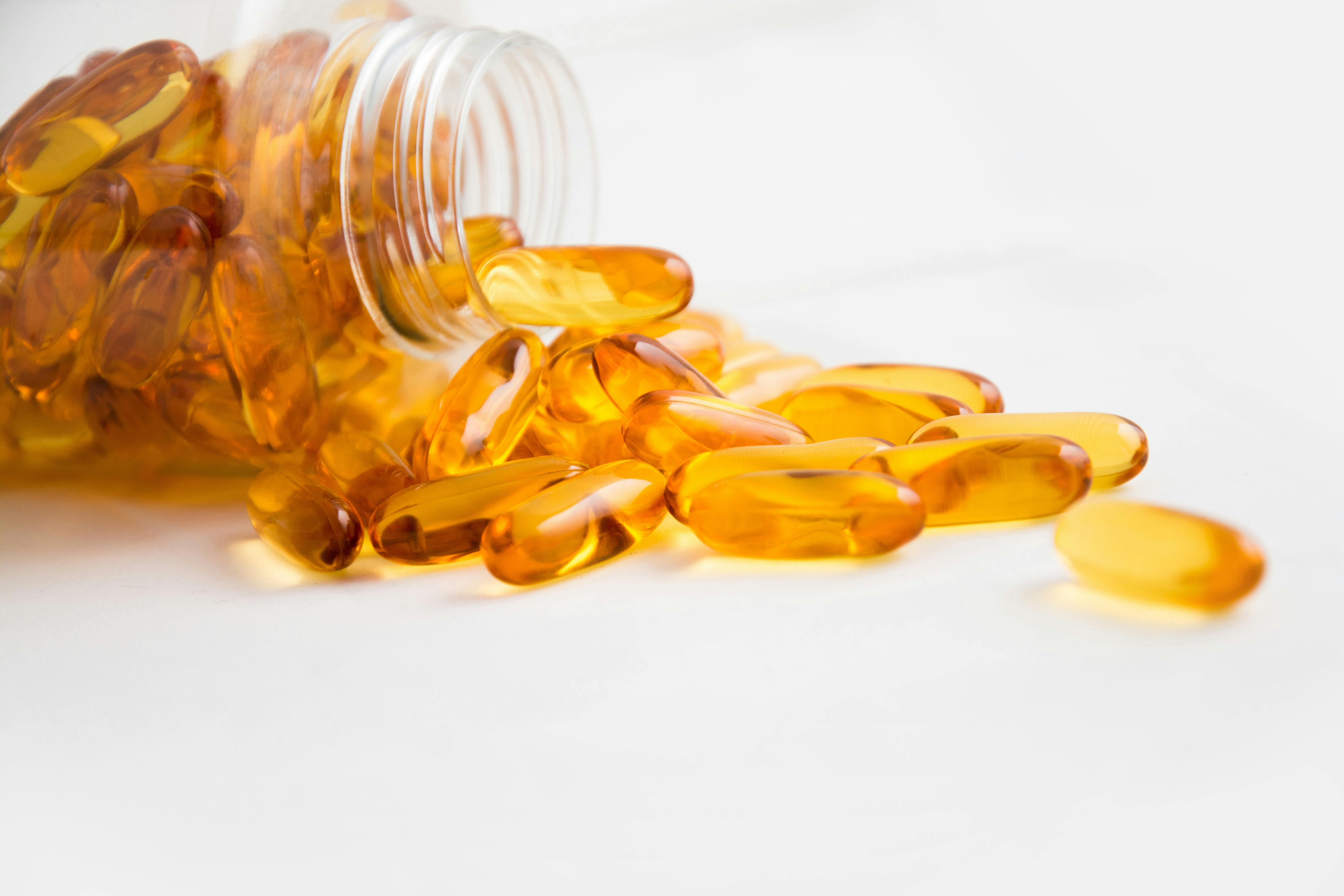If you’re experiencing menopause symptoms and wondering if there are any supplements that can provide relief, you’re not alone. Many women find themselves searching for natural alternatives to alleviate these often uncomfortable and disruptive symptoms. In this article, you will discover the top 5 supplements that can help manage menopause symptoms, offering you a potential solution to make this transitional phase of life a little smoother. By incorporating these supplements into your daily routine, you can potentially find relief from hot flashes, mood swings, sleep disturbances, and more, helping you navigate through menopause with greater ease.

Vitamin E
Menopause is a challenging phase in a woman’s life, often accompanied by uncomfortable symptoms such as hot flashes, mood swings, and vaginal dryness. Fortunately, there are supplements that may help alleviate these symptoms, and one of them is Vitamin E.
Benefits of Vitamin E for Menopause Symptoms
Vitamin E is a powerful antioxidant that can potentially reduce the frequency and severity of hot flashes, a common and bothersome symptom of menopause. It works by stabilizing cell membranes, which in turn may lessen hot flashes and night sweats. Vitamin E may also improve the moisture levels in the vaginal area, helping to relieve discomfort caused by dryness.
Recommended Dosage and Potential Risks
The recommended daily dose of Vitamin E for menopausal women is 15 mg (22.4 IU), although it is always a good idea to consult with a healthcare professional for personalized advice. It is important to note that high doses of Vitamin E may increase the risk of bleeding, so caution should be exercised if you are taking blood-thinning medications or have a bleeding disorder.
Black Cohosh
Another popular supplement for managing menopause symptoms is black cohosh, derived from the root of a plant native to North America.
Benefits of Black Cohosh for Menopause Symptoms
Black cohosh has been used for centuries to alleviate symptoms of menopause, such as hot flashes, night sweats, and mood swings. It is believed to work by interacting with serotonin receptors in the brain, helping to regulate body temperature and improve mood. Black cohosh may also help promote healthy sleep patterns, which can be disrupted during menopause.
Recommended Dosage and Potential Risks
The recommended daily dosage of black cohosh for menopausal symptoms is 20-40 mg, standardized to contain 1 mg of triterpene glycosides. However, it is important to note that black cohosh should not be taken for prolonged periods, exceeding six months, without medical supervision. Some rare side effects include upset stomach, headache, and rash. It is always advisable to consult with a healthcare professional before starting any new supplements.
Red Clover
Red clover, a flowering plant, is another supplement that may provide relief from menopause symptoms.
Benefits of Red Clover for Menopause Symptoms
Red clover contains compounds called isoflavones, which have a similar structure to estrogen and may have estrogen-like effects in the body. This can potentially alleviate the symptoms of menopause, such as hot flashes, night sweats, and mood swings. Red clover may also support bone health, which is particularly important during menopause when women are at a higher risk of osteoporosis.
Recommended Dosage and Potential Risks
The recommended daily dosage of red clover extract for menopause symptoms is 40-80 mg, usually taken in two divided doses. It is important to note that red clover may interact with certain medications, such as blood thinners, so it is essential to consult with a healthcare professional before starting any new supplements. Additionally, some individuals may experience mild side effects like nausea or headache, although these are generally rare.
Soy Isoflavones
Soy isoflavones, derived from soybeans, are natural compounds that may help manage menopause symptoms.
Benefits of Soy Isoflavones for Menopause Symptoms
Soy isoflavones have been shown to have mild estrogen-like effects in the body, which can potentially alleviate hot flashes and other menopausal symptoms. They may also help maintain bone health and reduce the risk of osteoporosis, which is particularly relevant during this stage of life. Additionally, soy isoflavones may have cardiovascular benefits, including improving cholesterol levels and reducing the risk of heart disease.
Recommended Dosage and Potential Risks
The recommended daily dosage of soy isoflavones for menopause symptoms is 50-100 mg. However, it is important to note that soy isoflavones may interact with certain medications, such as blood thinners or hormonal therapies, so it is advisable to consult with a healthcare professional before starting any new supplements. Some individuals may also experience mild digestive symptoms or allergic reactions to soy, so it is important to be aware of any potential allergies.

Calcium and Vitamin D
In addition to the specific supplements mentioned above, ensuring adequate intake of calcium and Vitamin D is crucial during menopause.
Benefits of Calcium and Vitamin D for Menopause Symptoms
During menopause, the risk of osteoporosis increases due to the hormonal changes that affect bone health. Consuming sufficient amounts of calcium and Vitamin D can help maintain strong bones and reduce the risk of fractures. Additionally, Vitamin D is important for calcium absorption and optimal overall health.
Recommended Dosage and Potential Risks
The recommended daily dosage of calcium for menopausal women is 1200 mg, and Vitamin D intake should be around 800-1000 IU per day. It is important to note that excessive calcium intake may increase the risk of kidney stones or other health complications, so it is essential to consult with a healthcare professional to determine the appropriate dosage for you.
In conclusion, managing menopause symptoms can be challenging, but there are natural supplements that may provide relief. However, it is crucial to consult with a healthcare professional before starting any new supplements, as they may interact with medications or have potential risks. Vitamin E, black cohosh, red clover, soy isoflavones, calcium, and Vitamin D are among the most commonly used supplements for managing menopause symptoms. Remember, each woman’s needs and health conditions are unique, so personalized advice is essential. With the right guidance, these supplements may help you navigate through this transformative phase of life with greater comfort and well-being.
